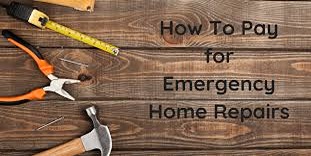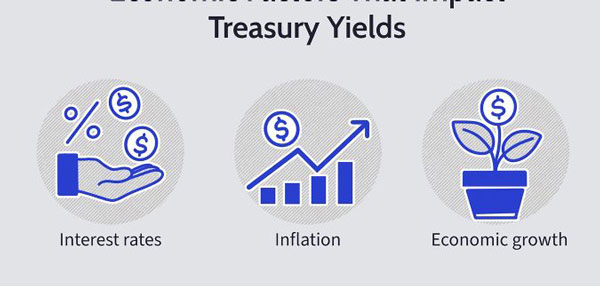Home repairs, regardless of their size or nature, can often become a costly endeavor. Even seemingly minor fix-ups have a way of quickly accumulating, leaving homeowners burdened with overwhelming bills. To avoid this financial strain, it is crucial to take a step back and assess whether you are paying an excessive amount for your home repairs. Conducting thorough research on pricing beforehand, obtaining multiple quotes from contractors, and taking advantage of available discounts are all effective strategies for reducing your home repair expenses. Moreover, acquiring the skills to perform certain repairs yourself can prove to be both a time and money saver, and you might even discover a newfound enjoyment in the process! By meticulously examining pricing options, exploring do-it-yourself solutions, and devising a plan for major repairs, you will be better equipped and more confident in tackling any repair job that comes your way.
Understanding Home Repair Costs:

When it comes to comprehending home repair costs, it is crucial to consider the various factors that influence these expenses. Material costs, labor rates, and the complexity of the task all play significant roles in determining the final bill. However, it is also essential to evaluate the long-term value. While investing in high-quality materials and professional services may come with a higher upfront cost, it can ultimately result in fewer repairs and maintenance in the future, leading to long-term savings. It is worth mentioning that prices can vary greatly among contractors and regions.
Therefore, before hiring a contractor, it is advisable to obtain quotes from multiple sources. While opting for the cheapest option may seem tempting, it can lead to subpar work that may require expensive repairs in the future. Conversely, the most expensive quote does not necessarily guarantee the best service. it is crucial to do your homework, read reviews, ask for references, and make an informed decision when it comes to understanding and managing your home repair costs.
Strategies to Reduce Home Repair Costs:
Homeowners can employ several strategies to effectively reduce home repair costs.
- implementing preventative maintenance measures can significantly minimize the occurrence of costly and unexpected repairs.
- Regularly inspecting critical areas such as the roof, plumbing, and electrical systems enables early detection of minor issues before they escalate into major problems.
- Acquiring basic DIY skills like painting, simple plumbing, or gardening can help save on labor expenses.
By implementing these approaches, homeowners can proactively manage their home maintenance costs while ensuring the longevity and value of their property. When hiring professionals, it's important to compare quotes from multiple contractors to avoid overpaying. Additionally, remember to request a detailed breakdown of costs to ensure transparency. Investing in high-quality materials is also crucial. Although they may have a higher upfront cost, their durability often results in fewer replacements, ultimately saving you money in the long term.
Keeping Track of Your Home Repair Costs:

Having a clear understanding of your spending on home repairs allows you to budget effectively, plan for future costs, and spot any potential areas for savings. Start by maintaining a dedicated home repair record. This could be a simple notebook where you jot down expenses, an Excel spreadsheet, or even a specialized home maintenance app. Include date of the repair, the nature of the problem, the solution, and the total cost, breaking it down into material and labor costs where possible.
Don't forget to file away all invoices, quotes, and receipts related to the repairs. This not only helps in maintaining a paper trail for your records but also is beneficial if you decide to sell your home in the future. Regularly review these records to identify any trends or recurring issues. By keeping a close eye on your home repair costs, you can make informed decisions that help you maintain your home without breaking the bank.
Home Repair Costs as a Selling Point?
When it's time to sell your home, the investments you've made in repairs and maintenance can turn into significant selling points. Prospective buyers value a well-maintained home, often willing to pay a premium for properties where major systems and appliances are in excellent working order. This means that the money you've spent on keeping your home in top condition can boost its market value. Record-keeping is crucial here. Your systematic tracking of home repair costs can serve as a persuasive tool. When you can show receipts and maintenance records that depict regular servicing and high-quality repairs, you're providing tangible proof of the care and attention given to the property.
These records can provide potential buyers with the confidence that the home has been well looked after, reducing their fears of inheriting hidden repair and maintenance costs.
Benefit of Home Repair Costs: Are You Paying Too Much?
- Reduced unexpected repair costs.
- Improved long-term value from investing in quality materials and professional services.
- Ability to compare quotes for the best rates.
- Increased savings from DIY tasks.
- Systematic tracking of expenses for budgeting and future planning.
- Documentation that demonstrates the value of care and attention given to the property when selling.
Conclusion:
Home repair costs are a necessary expense, but an informed and systematic approach to budgeting and record-keeping can help you manage these expenses. Understanding the variables that influence these costs, such as material quality, labor rates, and preventive maintenance, is key in reducing overall spending while maintaining excellent condition of your home. Investing in high-quality materials and services may seem expensive at first, but the long-term value they offer often pays off in the end. Knowing how to identify potential savings opportunities, such as DIY tasks or competitive quotes, can also help you manage your repair costs better. Lastly, when it comes time to sell your home, these records can provide potential buyers with peace of mind and add value to your property.
FAQs:
How should I choose a contractor for my home repair?
Start by getting quotes from several sources, then do your research by reading reviews and asking for references. Consider the quality of materials used as well as labor rates to get the best balance between price and service. Additionally, make sure you understand the details of the quote before committing to a contractor. Don’t forget to check for any certifications or licenses required in your area.
How often should I perform preventive maintenance on my home?
The frequency of preventive maintenance depends on the type of system being serviced and other factors such as the age of the house, local climate, and environment. Generally speaking, it’s a good idea to check key areas such as roof, plumbing, and electrical systems at least once a year, and have an HVAC technician service your system twice annually. It’s also important to conduct visual inspections around the home to identify any potential issues before they become more serious.
Are there other ways I can save on home repair costs?
Taking preventive measures such as regularly inspecting major systems and making small repairs as soon as an issue is discovered can help you avoid more costly problems in the future. Additionally, if you’re comfortable with DIY tasks, then those projects can be a great way to save money while expanding your knowledge of home maintenance. Lastly, consider looking into home warranty or insurance to provide financial protection against unexpected repair costs.











